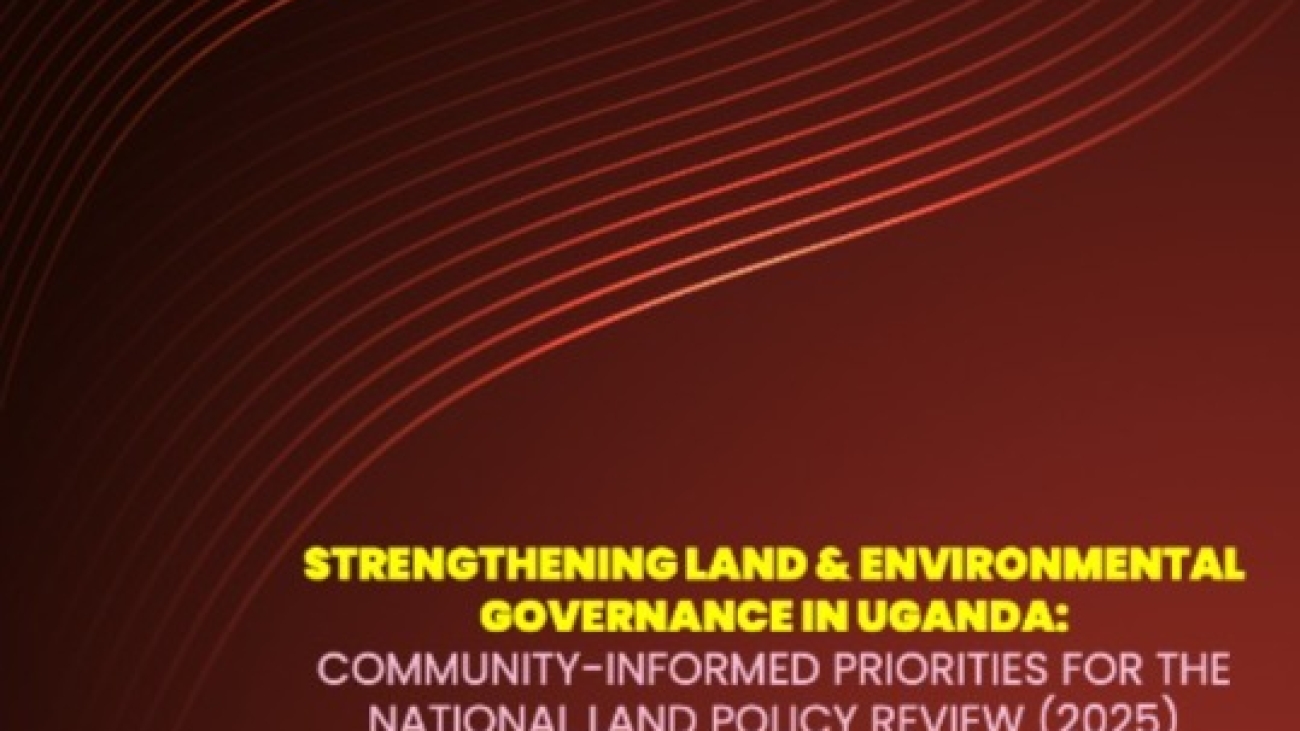COMMUNITY-INFORMED PRIORITIES FOR THE NATIONAL LAND POLICY REVIEW (2025)
Executive Summary Uganda is undertaking a critical review of its 2013 National Land Policy (NLP), offering a rare opportunity to address deep-seated governance failures in land and environmental management. While the policy framework on paper is sound, its implementation remains weak, uneven, and exclusionary. Communities, especially those in ecologically sensitive or resource-rich areas, continue to experience illegal evictions, land grabbing, environmental degradation, and systemic exclusion from decision-making processes.
To inform this review, the Land and Environmental Defenders Taskforce (LEDTAF) conducted a nationwide consultation combining survey data and focus group discussions. The study captured perspectives from 68 respondents across multiple regions, with a particular focus on areas affected by infrastructure expansion, extractive projects, and forest encroachment. The results present issues of selective law enforcement, politically motivated land allocations, and increasing threats faced by land and environmental defenders, among others.
A key finding was the disconnect between Uganda’s legal frameworks and the lived realities of communities. Respondents reported weak institutional coordination, corruption in land administration, and a consistent failure to engage grassroots actors in policy implementation. Environment and land defenders face harassment, intimidation, and lack any meaningful protection under current law, with little consideration for women and youth, whose voices are often silenced by patriarchal and political barriers.
Nonetheless, communities are not passive victims. They have developed powerful, locally grounded solutions from using indigenous conservation methods and traditional dispute resolution systems to adopting digital tools for reporting violations. These community-led innovations offer practical entry points for policy reform that is both just and enforceable.
This brief translates these insights into ten targeted recommendations with concrete implementation plans. It is intended for lawmakers, policy institutions, and local government actors involved in the ongoing NLP review. Implementing these reforms will help align the national land policy with community priorities, improve institutional accountability, and create an enabling environment for inclusive, transparent, and sustainable land governance.

